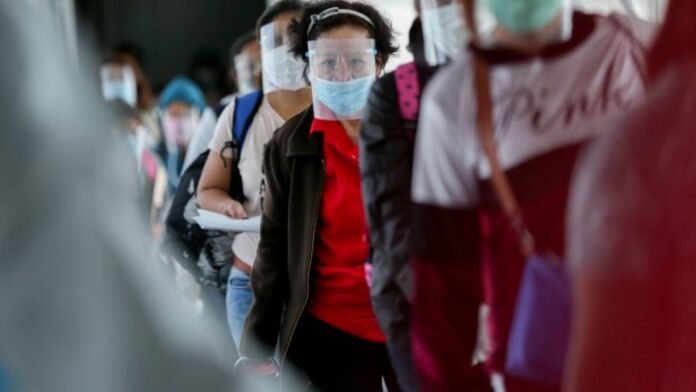Several institutes in the fields of business were on halt after Duterte’s administration decided to place the Philippines in lockdown. Manila was described as one of the countries in the world that has had the longest COVID-19 lockdowns by media outlets such as Time Magazine and Philstar due to the recognizable high rate of unemployment amongst Filipinos. Hours spent with no work have left individuals financially unstable, resulting in living complications among the minorities. The lack of income for providing everyday necessities made low-income households susceptible to health risks.
To aid the affected families, the Local Government Units (LGUs) distributed financial assistance and food packs. However, some Filipinos appealed that such operations were insufficient given the months of delayed response. With the people’s mental health affected, allocation of the budget was also questioned. Construction of the Dolomite Beach gathered mixed opinions among netizens as it concerns the government’s priorities.
Due to the intensity of the Coronavirus surge, frontliners from the medical field committed to hours of duties with limited time to eat, sleep, and interact with their families. Despite the risk to their safety, hazard pays were in low value and delayed. Groups and organizations of underpaid health workers expressed dismay through protests.
The current administration also strictly implemented Inter-Agency Task Force (IATF) protocols but the number of cases was still on the rise. Critics said that the implementation was subjected to the working class due to the issue of former Philippine National Police (PNP) Chief Debold Sinas with his birthday celebration. Limited gatherings and social distancing were violated but the involved party wasn’t apprehended. This resulted in several protests both conducted physically and on social media.
The emergence of the pandemic revealed the current state of the Philippines in terms of sustainability. More than two years since the outbreak, the country’s condition is still battling with COVID-19 variants. Processing the difference between the previous and current situation creates suspicions on whether the government’s response is adequate to save Filipinos. As our nation carries on to welcome the next set of leaders, considering the people’s complaints would help the majority not suffer from the same circumstances again.
Disclaimer: The opinions expressed in this article are the author’s own and do not reflect the view of POLITICO.PH
ABOUT THE AUTHOR:
Kristine Mae D. Cruz is a senior student of Communication at Far Eastern University-Manila and is currently an intern at Brown Bag Communications Inc. under PageOne Media. As a student, she has developed skills in research and writing articles for websites and magazines. Writing has been a passion of hers as well as the occasional binge-watching of historical documentaries. With media as her line of industry, she intends to seek the truth and create unbiased content as a representative of the Fourth Estate.


